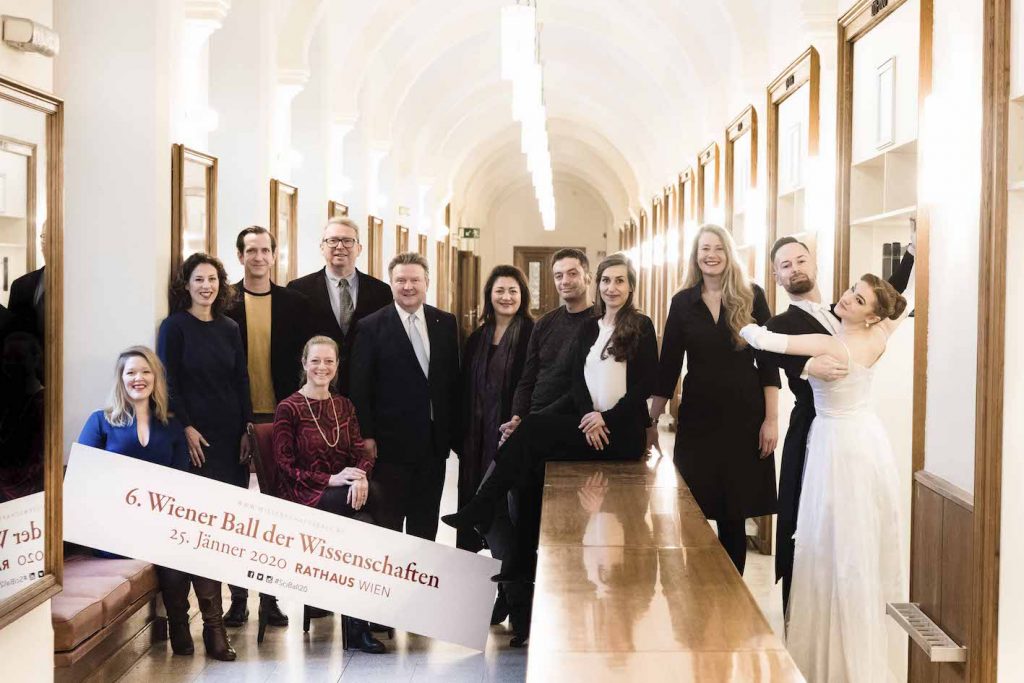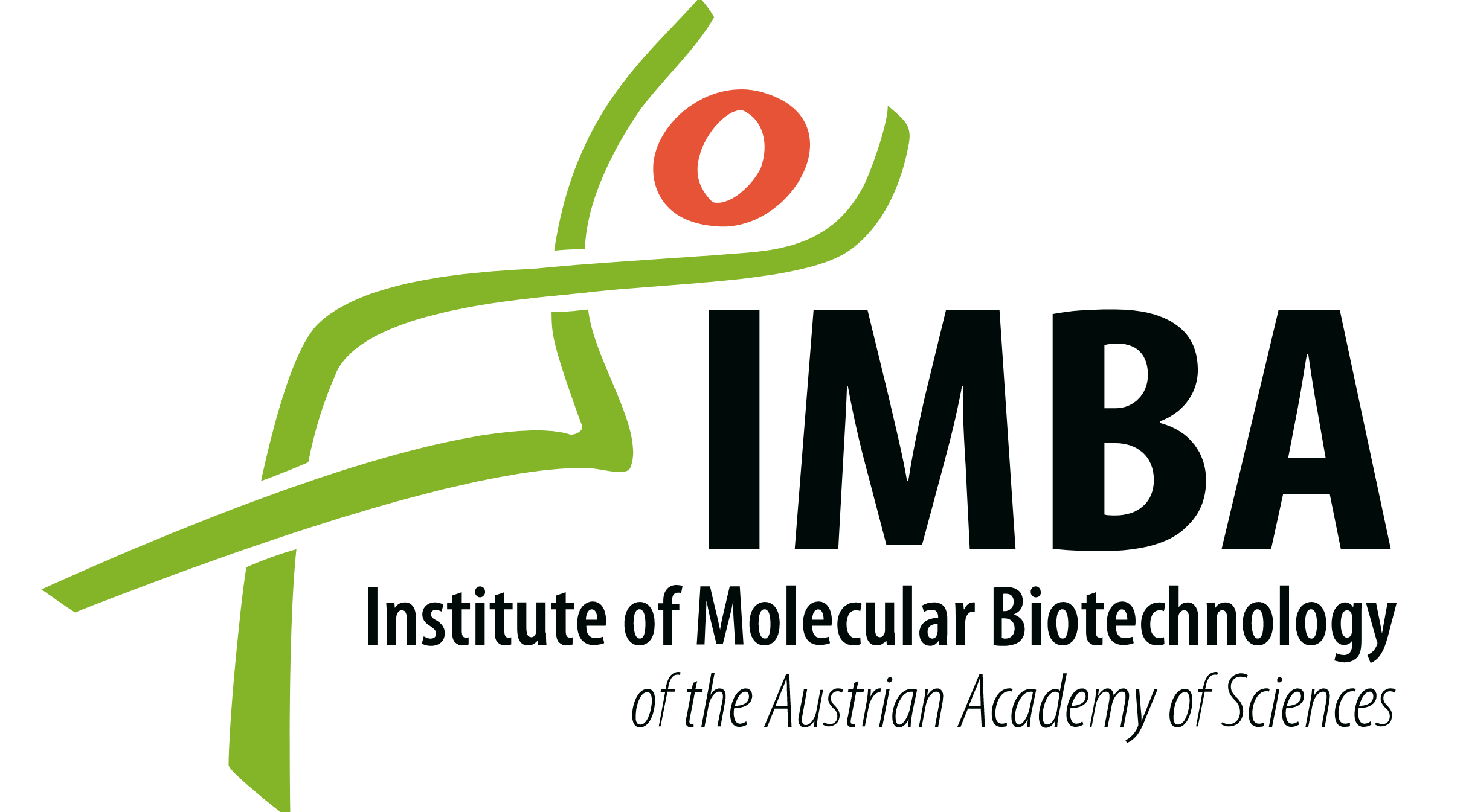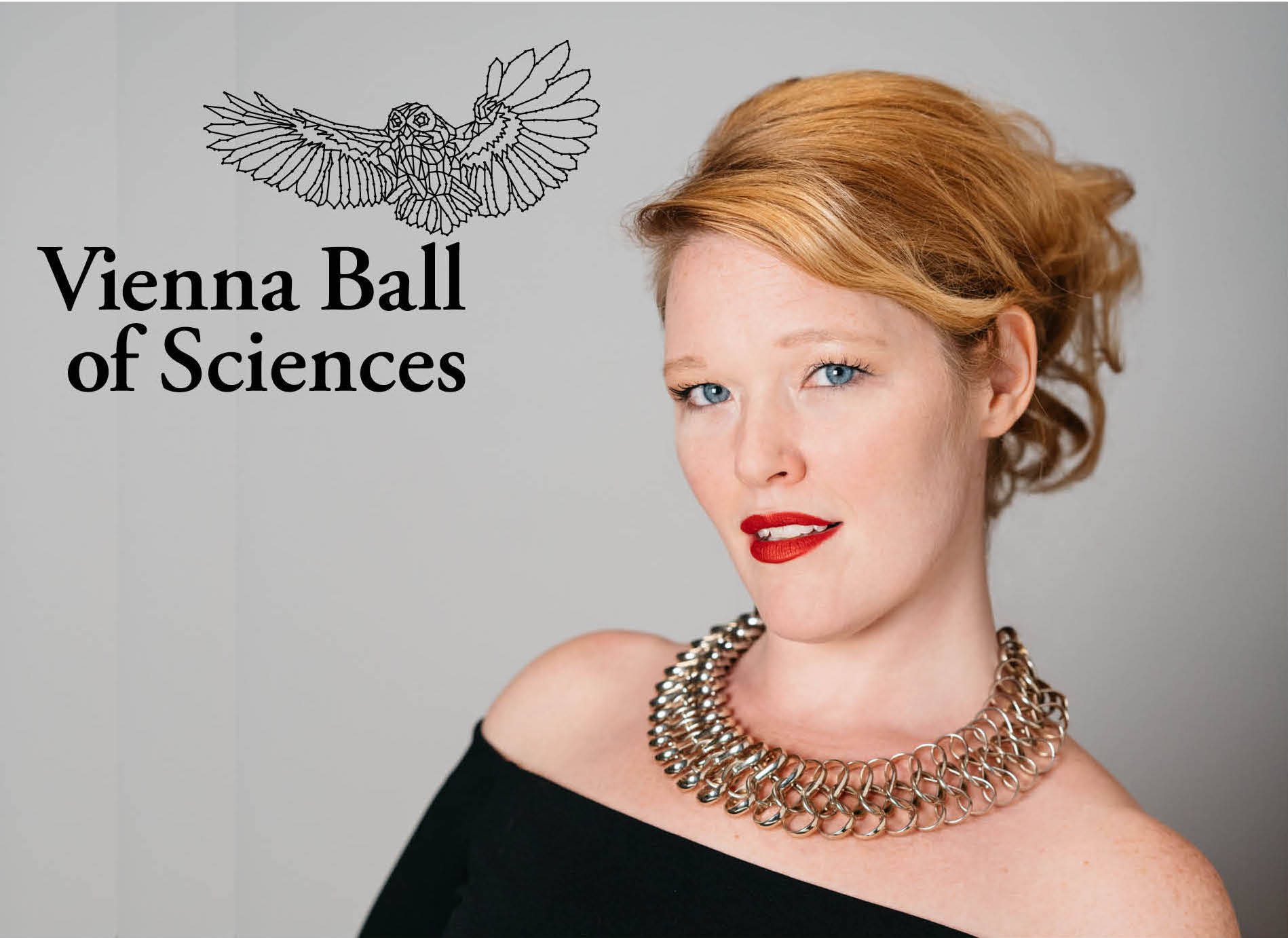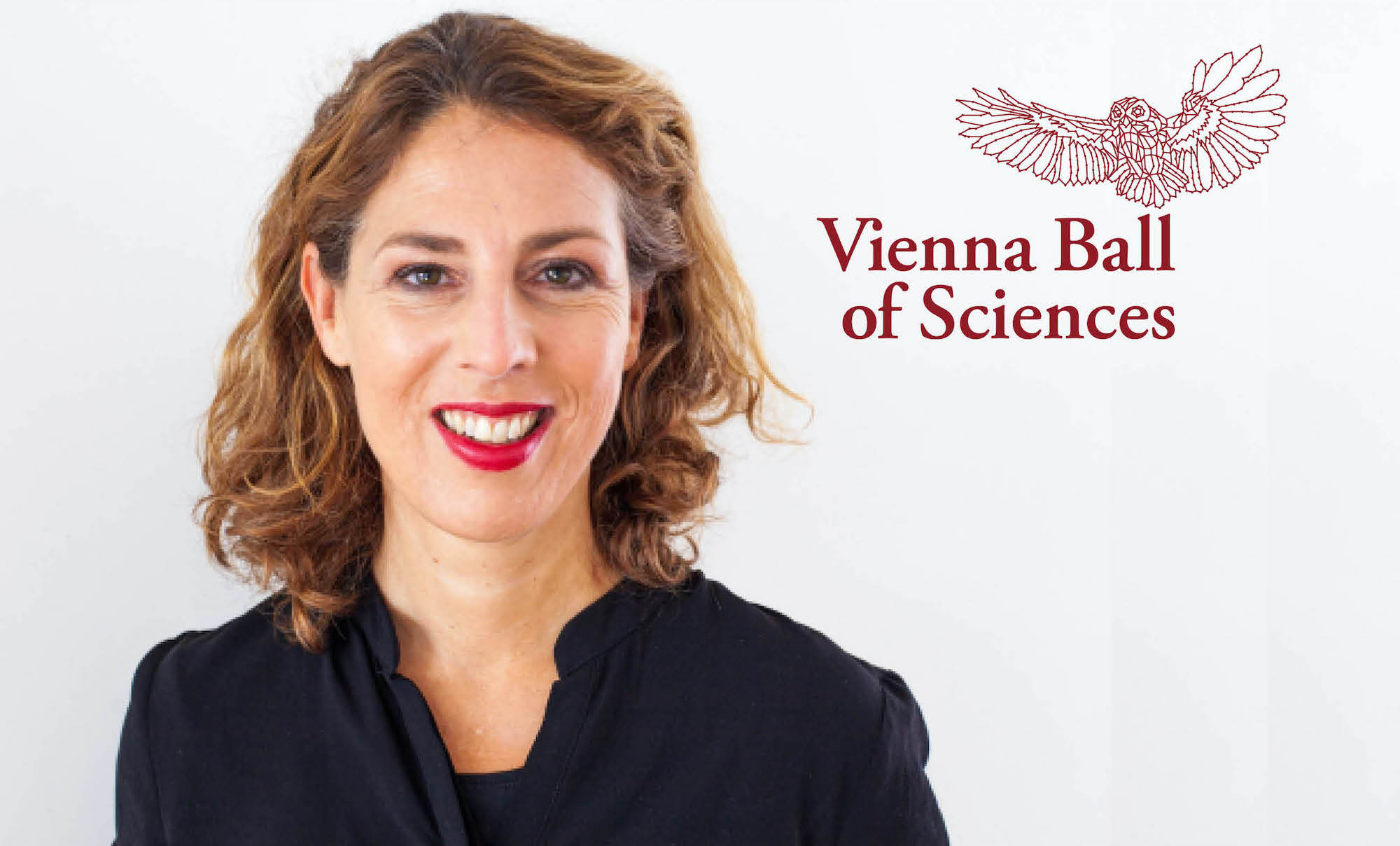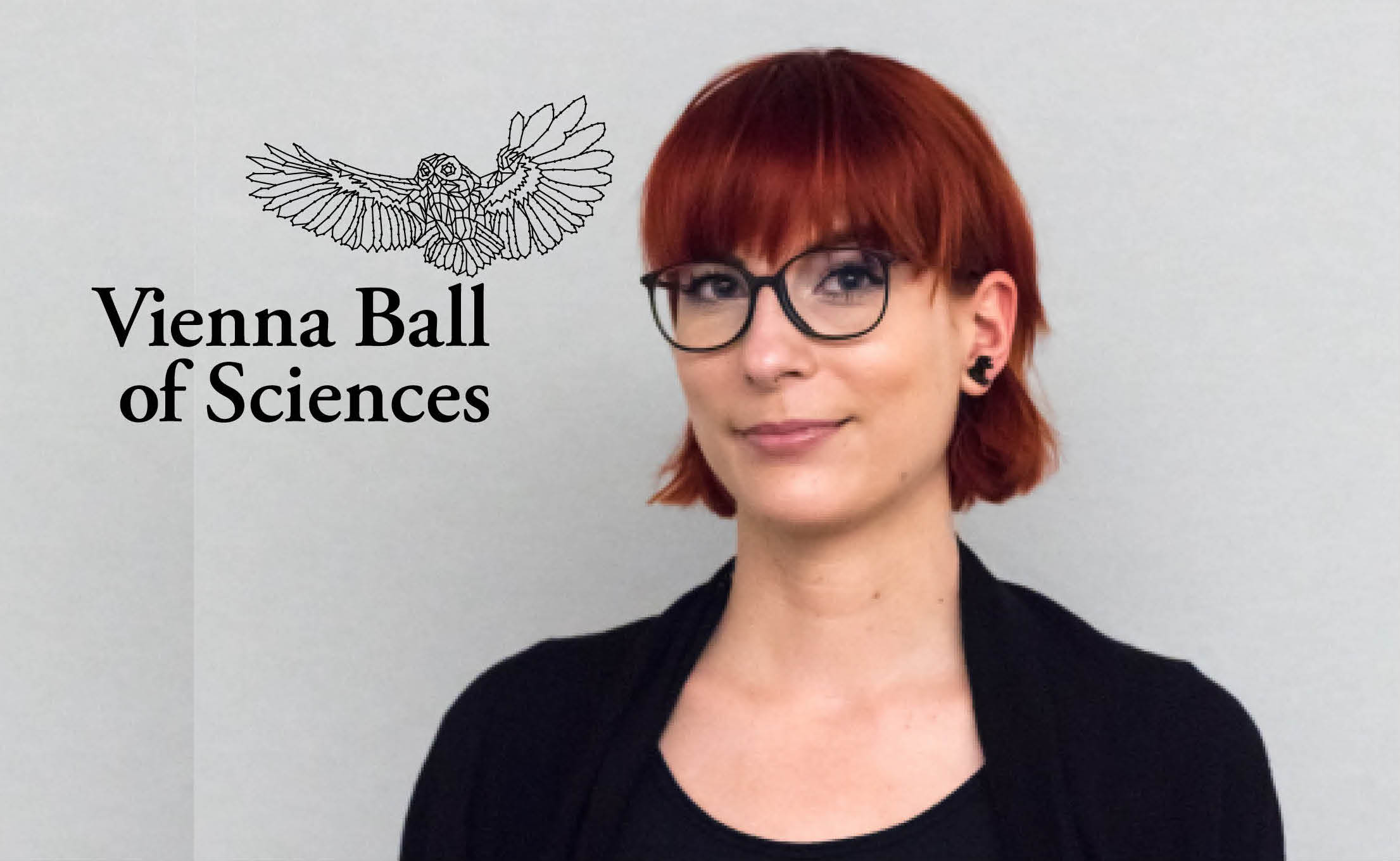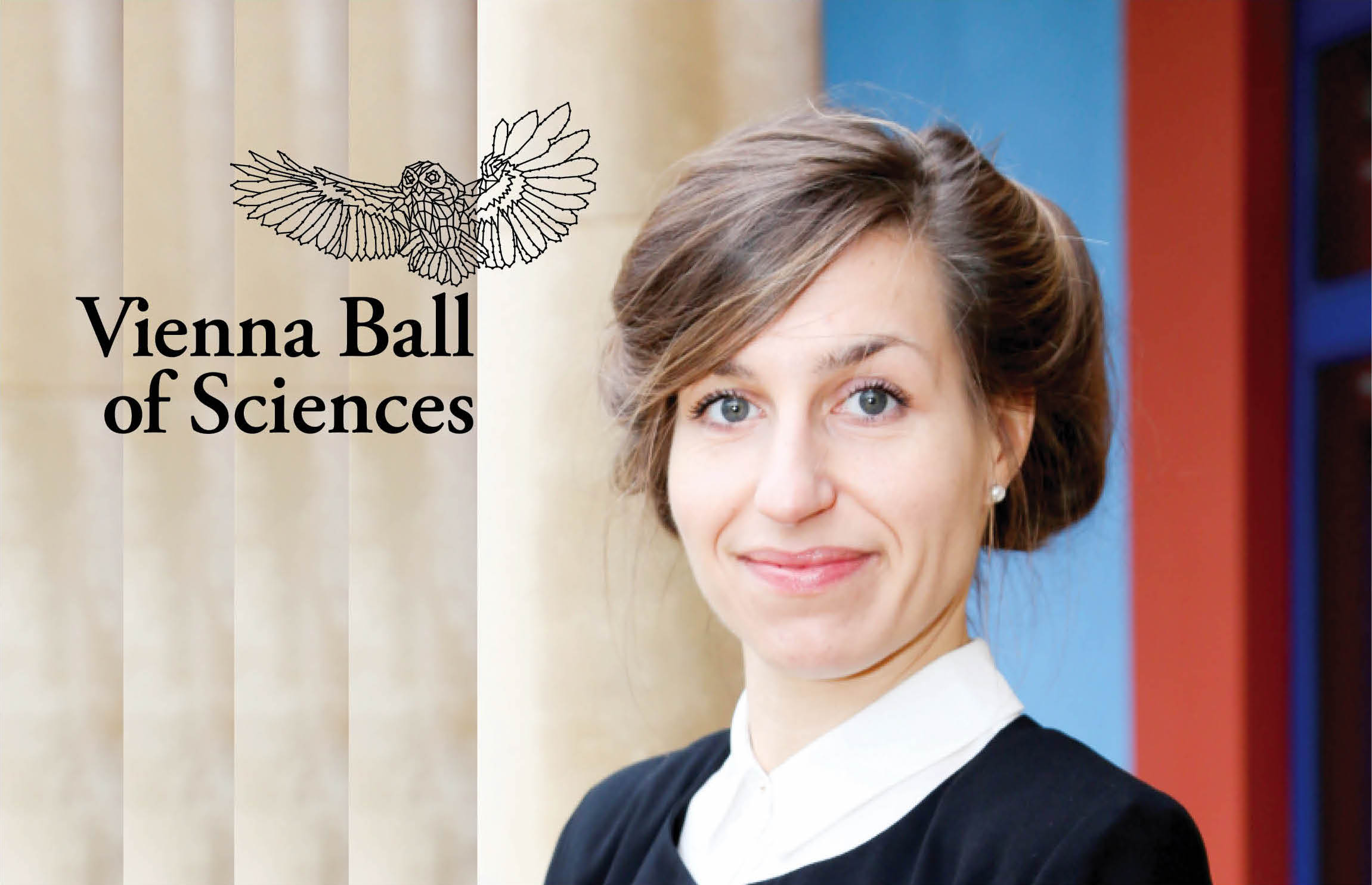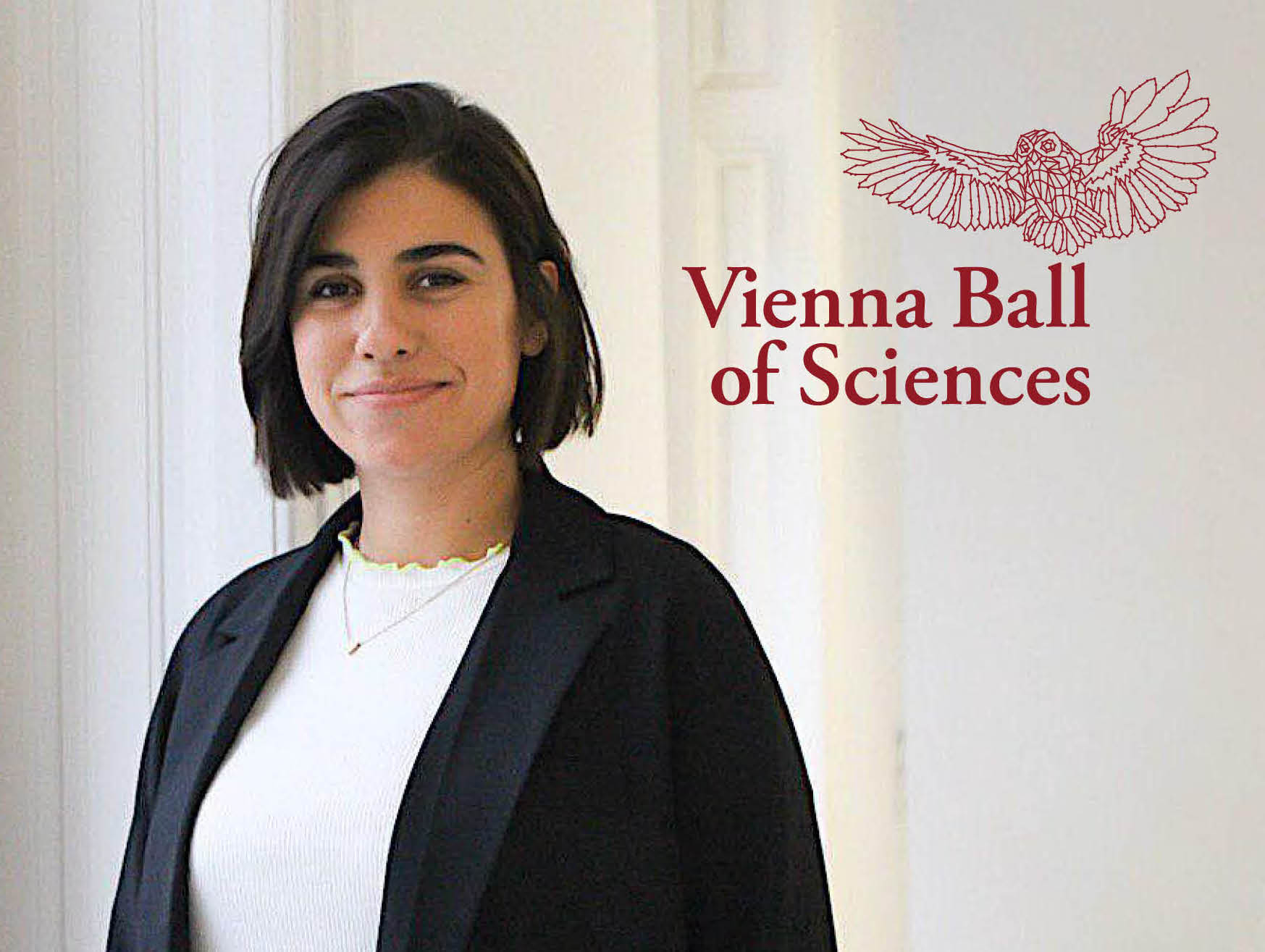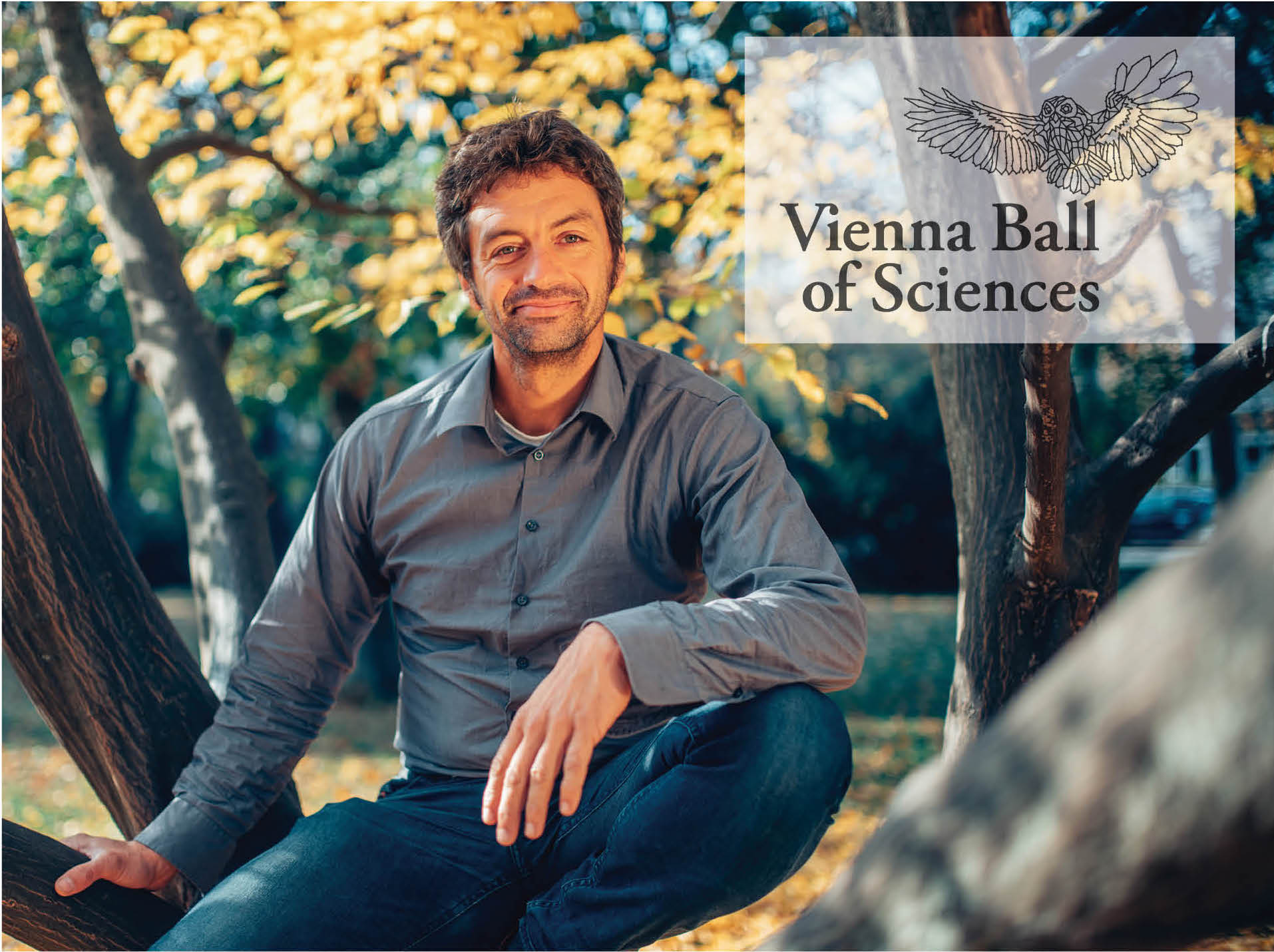Christmas is the right time of the year to honour traditions. In this spirit, we thank all of you for your attention, support, and appreciation in the past weeks. As expression of our gratitude we have prepared a special surprise for all our friends: 5% discount on 200 tickets and on 10 tables in the grand ball room and the adjacent halls if ordered by 7 January 2020 at our online box office. Photographer Sabine Hauswirth took this picture of our ball ambassadors where every ball in Vienna’s town hall starts and ends: in the central cloak room extending between the central staircases. In the name of all team members, supporters and ball ambassadors we wish you Season’s Greetings!
Category Archives: Archive
#SciBall20 at the movies
Coming to a cinema near you: our fantastic spot. Thanks to Marcus Ratka (JAM MUSIC LAB – Private University for Jazz and Popular Music Vienna), Lilly Ann Panholzer, Martin Mühl (Monopol Medien). Music: Bensound.com
Ball-gown-swap at IMBA
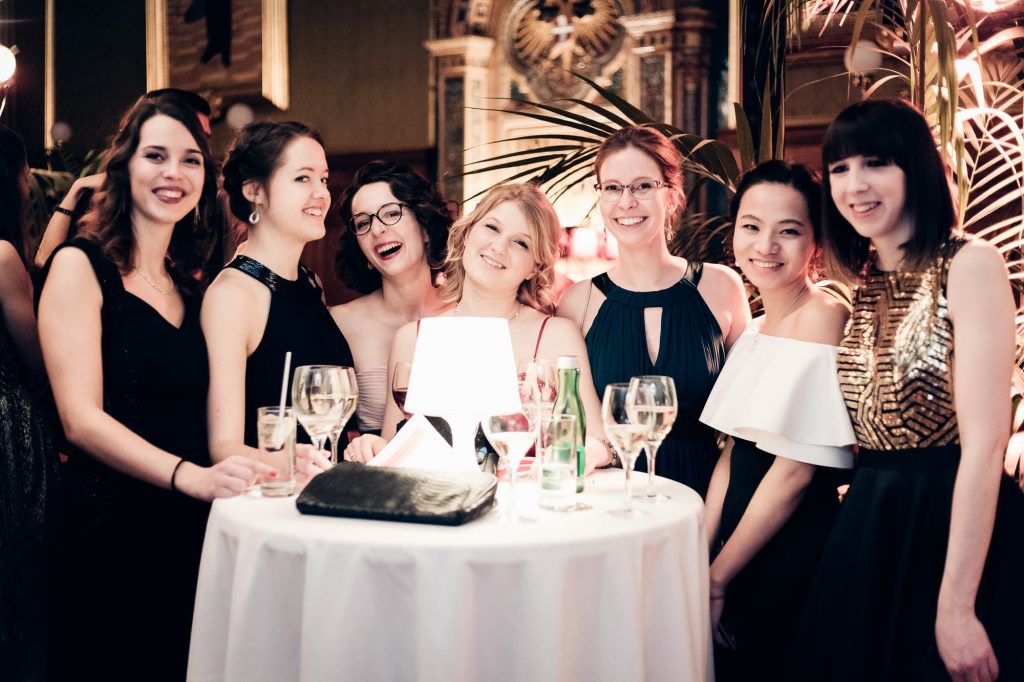
For the sixth Vienna Ball of Sciences, the organization team is focusing on topics like sustainability, climate change and an ecological crisis. Besides agenda items about biodiversity and a cooperation with the Fridays for Future activists, there will also be an event jointly organized with IMBA, the Institute of Molecular Biotechnology: On Thursday the 16th and Friday the 17th of January from 17.00-19.00 we will organize a ball gown swap at IMBA in the 3rd district. You can offer gowns and cocktail dresses that you will not wear this year and borrow dresses for the night.
How it works:
Lenders: Deposit your dress(es) either in advance every day from 9-18 at the IMBA reception (leave your name, address, phone number and email address) or bring them to the swap events on 16th and 17th of January directly and borrow a dress in return if you like!
Pick up your dry-cleaned dress again in the week of Feb 10th-14th, Mo-Fr from 9.00-18.00 at the IMBA reception.
Borrowers: Looking for a dress? Come to the event, enjoy a glass of champagne and check the selection! You can try the dresses on right away.
After the ball: Have the dress dry-cleaned and mended if necessary and return it as soon as possible at the IMBA reception, daily Mon-Sun between 9-18, latest on Sun, Feb 9.
Address:
IMBA – Institute of Molecular Biotechnology GmbH
Dr. Bohr-Gasse 3
1030 Vienna
U3 to Schlachthausgasse, trams 18 and 71, bus 74a to St Marx
If you have questions or want to help us get an overview in advance let us know you’re coming and whether you’re borrowing or lending. Just drop us an email at: office@imba.oeaw.ac.at.
Sonja Paulick-Fabini will answer further questions also by phone Mo-Fr, 9-14: Tel.: 0043 1 79044 4803
FAQ:
Can I also swap men’s evening wear? – Sorry, no menswear this time, only dresses! But we are thinking of expanding to the gents for next year.
Can I also sell my dress? If you would also be willing to sell your dress, please tell us the price when you drop off the dress in advance or just let us or potential buyers know at the swap event. If someone wants to buy and you’re not around, we’ll give them your phone number so they can contact you and arrange the sale.
Anne Wieben
“Vienna, city of my dreams!” The title of one of the most famous songs about Vienna could very well be the story of my life. 15 years ago I left my homeland, Minnesota in the USA, to study music in Vienna. It was love at first sight! What started as a one year study abroad experience has lead to a masters in music from the Music and Arts Private University of Vienna (MUK) and a career on the opera stages of the world. Yet no matter where my singing takes me, Vienna always calls me back. This is the city where Mozart, Beethoven, Schubert, Haydn and so many others found their inspiration. What’s more, this is a city where creative thinking has been encouraged, valued, and celebrated for centuries– and that continues today. The Vienna Ball of Sciences is a perfect example. For 6 years now, Vienna’s newest ball has been bringing together the most creative minds from across the world to share ideas– and, of course, to have a great time in true Viennese fashion!
It is my honor to not only be an ambassador for this year’s Ball of Sciences, but to also present the “Mitternachtseinlage” or “Midnight Show”. Get ready for a performance full of beautiful music, passion, and a healthy portion of fun. Whether you are a physicist or a violinist, a bio engineer or a chemistry student, a singer or an astronomer, put your dancing shoes on– see you at the Vienna City Hall on January 25th!
Anne Wieben is soprano and alumna of the Music and Arts Private University of Vienna (MUK). Recently she starred as Rosalinde in Die Fledermaus with the “Wir sind Wien” festival, which took place across Vienna’s districts. She also toured through Vorarlberg and Minnesota, and performs regularly with Vienna’s Nesterval ensemble. She is the founder and creative director of Opera on the Lake, an operetta festival in Minnesota.” At this year’s Ball of Science’s, she can be heard and seen during the midnight show, which includes a musical surprise.
Photo: (c) Gregor Hofbauer
Jörg Menche
 “The Vienna Ball of Sciences is the party of the year, which brings together what belongs together – but doesn’t manage to come together often enough. Scientists from all disciplines are celebrating a colourful, diverse night with “an attitude”. Modern research is meeting classic ball tradition and a rather sober academic gaze is enraptured by the cityhall’s fantastic scenery. In an environment known for its brain power, shaking one’s legs stands in the foreground, elegance has priority over function – even in the changing room. The Science Ball is bringing together the community of the curious, in a place it belongs: the heart of Vienna and of society.”
“The Vienna Ball of Sciences is the party of the year, which brings together what belongs together – but doesn’t manage to come together often enough. Scientists from all disciplines are celebrating a colourful, diverse night with “an attitude”. Modern research is meeting classic ball tradition and a rather sober academic gaze is enraptured by the cityhall’s fantastic scenery. In an environment known for its brain power, shaking one’s legs stands in the foreground, elegance has priority over function – even in the changing room. The Science Ball is bringing together the community of the curious, in a place it belongs: the heart of Vienna and of society.”
Jörg Menche is Principal Investigator at the CeMM Research Centre for Molecular Medicine , which is part of the Austrian Academy of Sciences in Vienna. His team is research molecular networks and how disturbances can cause diseases. Visitors can dive into this network through a virtual reality installation at this year’s Science Ball.
Photo: (c) Wolfgang Däuble
Andrea Zsutty
„One of the goals at the ZOOM children’s museum is to give children a sensory approach to art and science. Touching, smelling, tasting, seeing and hearing makes complex topics more attainable. Children have a natural curiosity which stands at the basis of every learning process and scientific research. Already at a young age they get to know that all living spaces and organisms on Earth are connected. Biodiversity – one of the foci of this year’s Ball of Sciences – shows that humanity is also a part of this complex system. Let’s celebrate the diversity of life with this ball, sustained by pillars of openness, tolerance and respect!”
Andrea Zsutty is the new director of the ZOOM children’s museum. As a studied art historian she is working in communication of art since 1996, most recently at the Bank Austria Kunstforum. The ZOOM children’s museum located at the Vienna Museumsquartier was founded in 1993 and welcomes over 120.000 visitors every year.
Photo: (c) ZOOM Kindermuseum
Martina Lindorfer
“Vienna is – in the best sense of the word – different and I cannot imagine any other city which successfully combines two things which, at the first glance, seem to be very distinct: a time-honoured ball tradition and future-oriented research. But since standing still is the enemy of a successful night (especially at a ball), Grace Hopper’s motto is also true for the Ball of Sciences: “The most dangerous phrase in the language is, ‘We’ve always done it this way.’” I am therefore looking forward to an extraordinary combination of a classical ball with scientific impulses.”
Martina Lindorfer is assistant professor in the Security & Privacy Group at the TU Wien and key researcher at SBA Research, the largest research center in Austria which exclusively addresses information security. In her research she is specialising on methods for automatic recognition and defense of malware on mobile devices. She was awarded the Hedy-Lamarr-Preis 2019 by the City of Vienna, which honours Austrian scientists for their innovative accomplishments within IT. In 2017 she graduated „Sub Auspiciis Praesidentis“ at the TU Wien, between 2016 und 2018 she was a Postdoc at the University of California, Santa Barbara.
Grace Hopper was an US-American computer scientist and navy admiral who pioneered computer programming.
Photo: (c) privat
Alice Vadrot
“A ball facilitates social exchange and dialogue characterised by a sense of beauty and elegance. Traditionally, balls always had a special function within international diplomacy. Together with my team I am currently researching international negotiations regarding a new treaty for the preservation of marine biodiversity. Often we find ourselves in difficult stages of discussion in which the main goal – which is the protection of oceans – has to take a back seat and in which countries don’t seem to be willing to move one millimeter in the favour of nature. These are the times when I am longing for a space of encounter and dialogue – and the Vienna Ball of Sciences is such a space, mixing tradition and innovation while embodying beauty and elegance, which is as much part of scientific thinking as it is of the ocean we need to protect.”
Alice Vadrot is assistant professor at the Institute for Political Sciences, University of Vienna, and principal investigator of the research project MARIPOLDATA, financed by the European Research Council. The project looks at political processes behind negotiations regarding marine biodiversity. She is also Visiting Research Fellow at the Centre for Science and Policy at the University of Cambridge and a member of the Austrian biodiversity council together with Franz Essl.
Photo: © Centre for Science and Policy (CSaP), University of Cambridge
Adrijana Novaković
„Since 2015, the Vienna Ball of Sciences is setting an example as a counterpiece to the far-right Akademikerball. In a time filled with right-extremist thoughts surrounding us in our everday lives, a time in which hatred and agitation have become normality and in which ideologies of inequality can even be found in science, it is necessary to take a stance against. Right-wing extremists, members of right-wing fraternities and other nationalists must never dominate science again. Critical and sustainable science is only possible if research and studies are open and free. Let’s set an example together in the Rathaus, in the academic and public sphere. Let’s set an example for openness and tolerance.”
Adrijana Novaković is head of the Austrian National Union of Students federal body of Representatives(ÖH). She studies history and history of art at the University of Vienna and was one of two main candidates for the Green and Alternative Students (GRAS) at the last ÖH-election. In the years before she worked in the department for foreign students and anti-racism at the ÖH Vienna.
Photo: Österreichische Hochschüler_innenschaft.
Franz Essl
“Diversified, versatile, inspiring. This is how a prosperous life should look like – as well as a successful ball night. This year’s Ball of Sciences has no shortcoming in these aspects, since biodiversity is going to be brought into the ballroom. Waltz surrounded by flowering meadows, foxtrott amidst insect buzzing. Doesn’t this guarantee a wonderful ball night? Nevertheless, it is one more reason to care for this diversity.”
Franz Essl is assistant professor at the Department of Botany and Biodiversity Research at the University of Vienna. In his research he focuses on biodiversity protection and so-called neobiota, non-native species. He is also a member of the Austrian Biodiversity Council (IPBES) and involved with “Scientists for Future“.
Photo: (c) Skonatitsch
